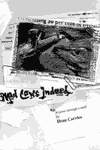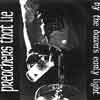Martin A Lee & Norman Solomon, �Unreliable Sources: A Guide to Detecting Bias in News Media�
This book made me angry. Not angry at the book itself, as is what usually happens, but angry with the people described in the book. In the wake of Jayson Blair newspapers and television shows have gone on the attack for journalistic integrity and ethics, each sounding like they hold sole property on these principles.
This isn�t uncommon. It happens every time a reporter or a network is caught doing some trickery, as outlined in this book when ABC news recreated �hidden camera� surveillance pictures involving an actor portraying a U.S. diplomat handing over a briefcase to another actor playing the role of a KGB agent. The New York Times sounded off after the program saying, �the fakery insulted viewers, ethics and journalism.�
Ho ho.
Unreliable Sources documents dozens upon dozens of similar incidents. Sometimes these incidents are due to laziness of the reporter, other times from pressure from up on high in the increasingly expanding corporate controlled media and press, and still other incidents stem from a political chilling effect. In any case, it reaffirms what I�ve always said throughout my college career as a journalism student:
Reporters are scum.
But really, as I�ve read several of the source books cited here, the content wasn�t truly a surprise to me and it wasn�t the reason I was so angry. No, I was angry with myself. See, as I read incident after incident of reporters kowtowing to pressure not to report on the truth, I was reminded of a student journalism conference I once attended.
I had been to these things before. Mostly they consist of a reporter offering optimistic tips to students before they ran back to some dimly lit bar to quietly bemoan their status in life. In between the seminars there are writing contests and exercises, combined with a lot of student journalists looking for people from neighboring schools to hit on. Finally, we convened in the main hall for the news writing contest.
Normally this consists of a historian outlining the aspects of a recent case or event, whereupon the students diligently take notes, ask a few questions in a press conference environment, and then race to the computer to type up a story in an hour or less, just like Lenscrafters. This particular event started off no different, involving a demonstration of the sheriff department�s new K-9 unit and how they had been implemented to deal with the city�s growing meth lab problem.
The K-9 unit turned into the city�s circus seal, performing a few tricks and detailing how it would stop and assume an unnatural stance when it caught the scent of drugs. The master of ceremonies thanked the officer for coming, and the cop and the dog started to walk through the audience toward the exit.
Then the dog stopped.
The cop looked at the backpack sitting next to a student. The dog assumed the position. The kid quickly threw his arms up saying it wasn�t his bag. The cop asked whose bag it was. The student responded by bolting for the exit.
The place exploded. Cops tackled the guy right outside the stadium doors. People freaked the fuck out. After ten minutes of waiting, the master of ceremonies reported that the cops were willing to make a statement for the class, and that our assignment had now changed — we were to write about the incident.
Something stunk, and it wasn�t what was in that backpack. While the other students were fine with crowding the cops paparazzi style, I started doing my own hunting. Our deadline had been extended, so I made a lot of calls. Campus Security. The Sheriff�s Department. The local jail. Nobody had any information. When the cops came back for our press conference, I got picked for a question.
�Some students have expressed the opinion that this incident was in actuality,� I said, �not an arrest, but a journalistic exercise. So I�m going to ask you a yes or no question point blank: Was this a journalistic exercise?�
�Why would we do that?� the sheriff answered.
�That doesn�t answer my question,� I responded. He moved to a different student, who repeated a question that had already been answered 10 minutes earlier.
Our deadline had been extended overnight, so I made more calls and got more quotes. By the time I returned to the campus the next morning, I had all the proof I needed that this entire event was faked. I hunted down the master of ceremonies, presented him with my evidence, and asked him for comment.
His statement reinstated the same line of crap the cops had given us earlier, and he refused to comment on my findings. Then, in what was off the record, he admitted the whole thing was faked, and it was an attempt to make the whole experience fun for the students. And then he really laid into me.
�Look,� he said, �you�ve been to these things before, and you know how boring they are. We�re trying to make it more fun for everybody, but this is also the first time we�ve tried anything like this. If you make a big stink, they won�t let us do something like this again. You�ve obviously proved you�re a good reporter, and you might even be a great one. There�s only one other person who figured out we staged this event, and she only got it by badgering us for hours. But the two of you are getting hot under the collar for something that doesn�t matter. This isn�t Watergate. This is a writing exercise for a convention that�s supposed to be fun.�
�You�re asking me to write a story that I know is false,� I said.
�Yeah, but this isn�t for publication! This is a contest! Win the contest! Then, if you�re still mad, write about what really happened afterward!�
(NOTE: some may take issue with the fact that I am now discussing events that were presented off the record. I use the same excuse — this isn�t for publication. Also, I�m taking care not to present evidence of those involved, where it happened, and the timeline in which it transpired. So there.)
He kept at me for over an hour. Then we were sent to our cubicles to write up the �incident.�
And I caved. I wrote up a crappy local crime story using the basest who/what/where/why/how guidelines. I finished quickly, turned my paper in and walked outside to smoke, feeling hollow and cheap. Worse, I felt like a fake, having just written a fake story. And it was a shitty fake story, because I couldn�t bring myself to write a good story that I know didn�t happen.
I knew I wasn�t going to win anything.
And then I got mad. I finished my cigarette and stormed back in the newsroom. I took back my story and started again, writing the expose of events I had planned to write. But I had wasted too much time, and having a much more complicated story to write, I only finished the first five graphs before the timer ran out. But it was the right story to do.
Of course, that story didn�t win either. I spoke with the other girl who had found out the truth and discovered they had bullied her as well, and she caved just like I did. She didn�t win either.
That was the last conference I attended. I�m still mad about the incident. I understood the point about trying to make the conference exciting and memorable, and that�s fine, even if they fake an event. But, as these are professionals who are supposed to mentor budding journalists, I�m incredulous that they would attempt to shut us up if we, as reporters, uncovered the truth.
Reading Unreliable Sources, I realize that perhaps the people at this convention were attempting to get us used to the idea of not writing all the news that�s fit to print.
If that was their plan, I�d like to think it backfired in my case. I never want to feel that shame of writing a news story that I knew was false again, ever. And if I am ever in a position were the person in power attempted to bully me out of writing a story, I know I�d write it anyway. There are always bookstores that I can work at if journalism falls through.

